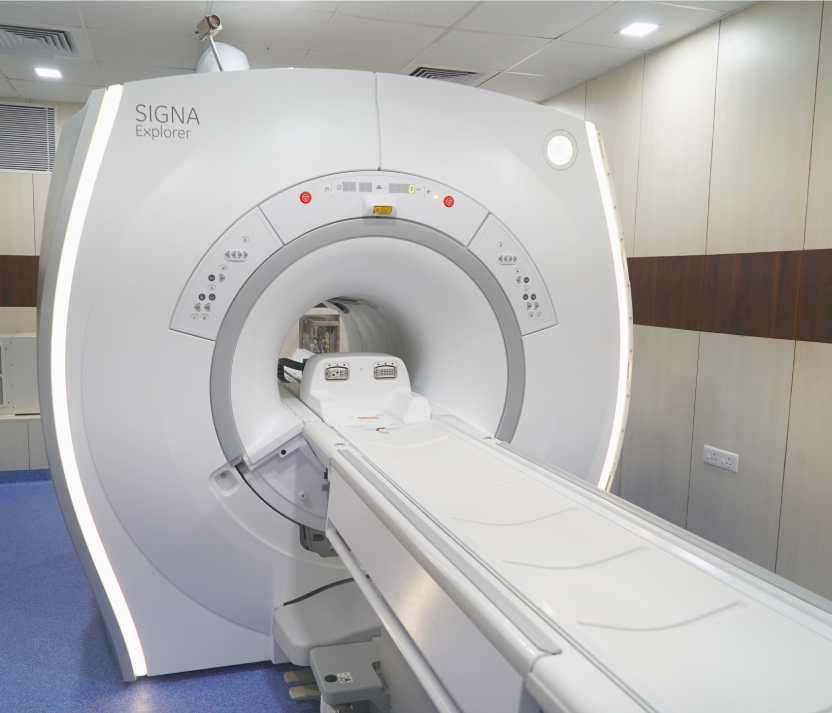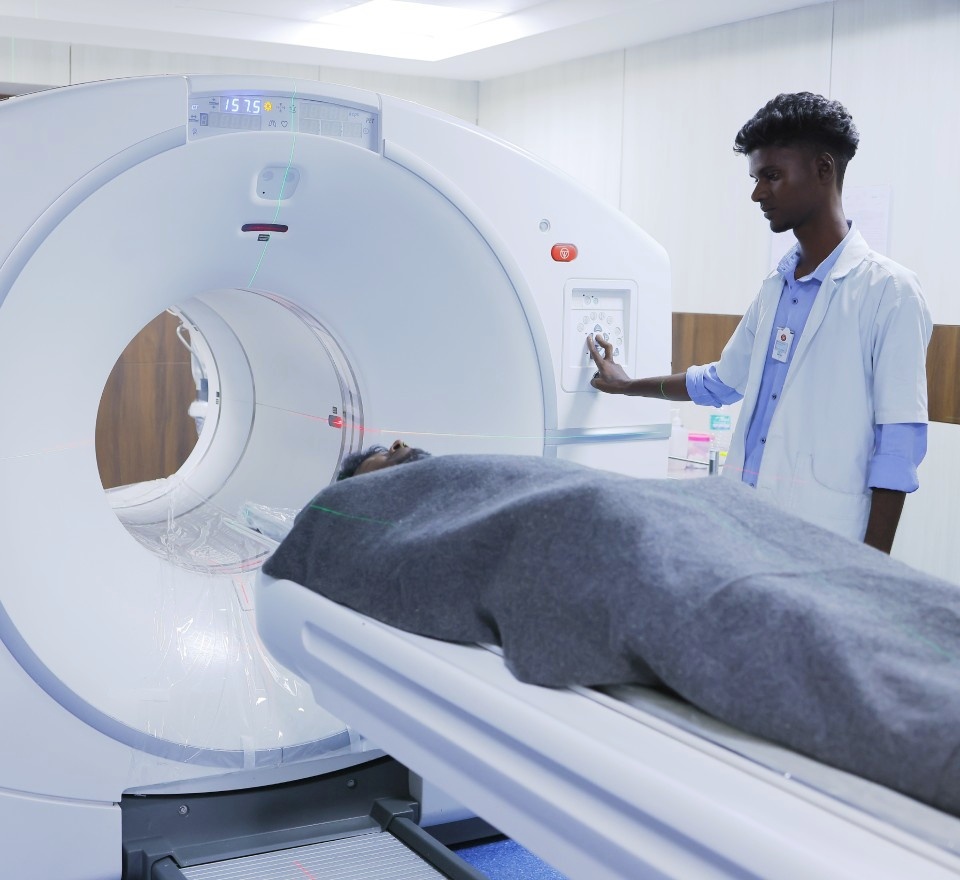Radiology Hospital in India – Comprehensive Radiology Department
Radiology

Department of Radiology
The Department of Radiology at Thangam Hospital provides a full spectrum of advanced imaging services. Our state-of-the-art technology and experienced team are dedicated to accurate and timely diagnostics for oncology, trauma, and antenatal care. Additionally, we perform USG and CT-guided procedures such as FNAC, biopsies, and drainage, all available with seamless integration into our hospital management system (HMS) and round-the-clock accessibility.
Comprehensive Imaging Modalities Available:
- MRI
- Low Dose CT scan (Computed Tomography) – 32-Slice Whole Body Scanner
- 3D Mammography (Breast Tomosynthesis)
- Echocardiography (ECHO)
- Hysterosalpingography (HSG)
- Ultrasonography (USG) & Doppler Imaging
- Digital X-Ray (Radiography)



